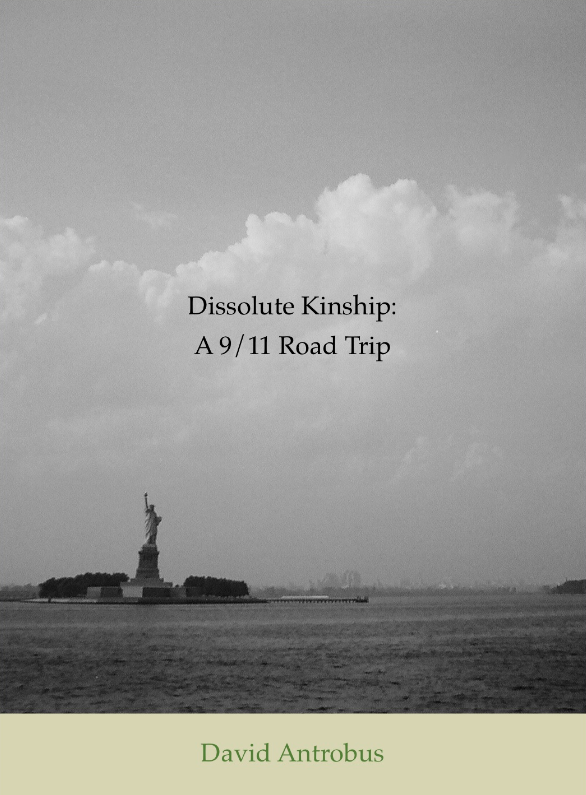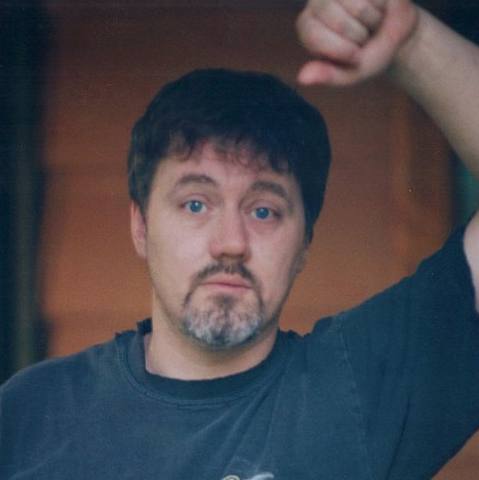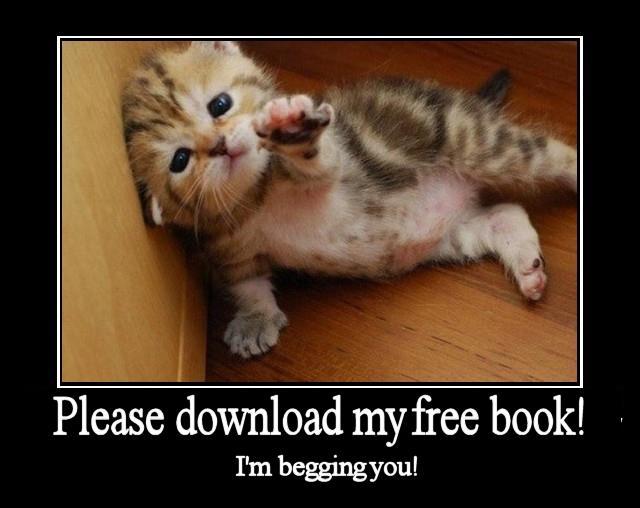Part Two of a longer post. Part One is here.
__________________________________
Over time, we became street fixtures ourselves, and this is where trouble can start.
First, it is easy to begin to over-identify with the street lifestyle and see the "normal" world as the enemy, as a cold, insouciant planet of hypocrisy-peddlers from manicured suburbs or hostile downtown business owners clearing their precious doorways, customers with wallets relentlessly prioritized over these troublesome urchins.
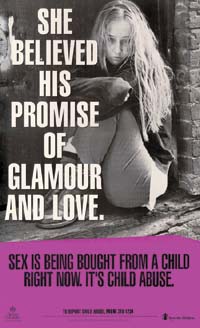 And second, it's even easier to bond with the youth themselves. For all their outward bravado and feral smarts, street kids are still kids, and once they trust you, their loyalty is fierce, as it must be in return if we were to be effective. For they have first survived and often been further hurt by a system that regularly ignores their specific needs, or that judges them unfairly, or that contains workers who once genuinely believed in "helping others" now turned cynical by a job that shackles them to a desk and forces them to fill out endless forms largely designed to protect their supervisors from lawsuits.
And second, it's even easier to bond with the youth themselves. For all their outward bravado and feral smarts, street kids are still kids, and once they trust you, their loyalty is fierce, as it must be in return if we were to be effective. For they have first survived and often been further hurt by a system that regularly ignores their specific needs, or that judges them unfairly, or that contains workers who once genuinely believed in "helping others" now turned cynical by a job that shackles them to a desk and forces them to fill out endless forms largely designed to protect their supervisors from lawsuits.
So when—as happened in my final year in the job—you lose two boys and one girl, all to some dire yet sly breed of violence, you tend to take it badly. And when the system is so broken that I am double-teamed by my own supervisor and a child protection worker and instructed to ignore a local 13-year-old girl—who is right now claiming physical and sexual abuse in another city—for the sole reason that she is now in an adjoining province and therefore no longer "our problem"; while that same week I'm thwarted by numerous drug rehab centres—after an 18-year-old girl finally relents and asks for help for her crack habit—on the grounds that she is too old for the youth facilities and yet won't qualify for the adult detox centres, it can all come to a head very quickly and very starkly. So when that third child, a 14-year-old girl this time, was found hanging in her basement by her 10 year-old brother, I simply walked away. Ostensibly a medical/stress leave, but I knew I wouldn't be going back.
Now, I'm not saying this was entirely the work. There was some stuff of my own I'd been carrying for far too long and which needed lancing before it ended up seriously ruining me—and that's not hyperbole—stuff that would take at least another decade to work through, but basically, I had begun a career which was not sustainable over the long term, and unlike other acknowledged high-stress occupations, there would be no twenty-year pension for me. No gold watch. No one to recall your deeds, heroic or otherwise. Nobody quite spells out to you at the beginning of all this heartache how truly corrosive to your happiness this work can be. No one mentions the eleven-year-old daughter of newly arrived Central American immigrants performing fellatio on a sick old man in the back of a local limousine. Or warns you about the fatal overdose in an alley on "Welfare Wednesday" that won't even make the local newspaper. Or prepares you for the rage of a twelve year old boy with a Christian cross seared into his torso from throat to navel by, presumably, some glowing and righteous cigarettes.
So, now we're at the point where I realised that world was gone from me, perhaps forever. A couple of confirmations by mental health types that I was suffering from Post Traumatic Stress Disorder and clinical depression (wonderful how they always like to hit you with two diagnoses, as if you're not reeling enough) later, and I entered 2001 on antidepressants. Which explains why I felt nothing and to this day remember almost as little of the first half of that year. I think I hiked in the mountains a lot.
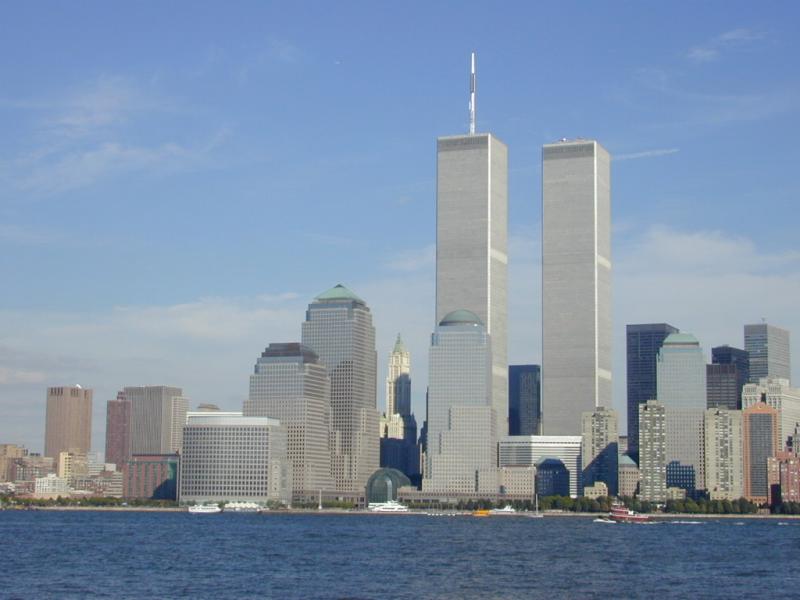 It was some time during the summer that the idea of the road trip occurred to me. It became an idea I couldn't shake, and the combination of an understanding family and conveniently located friends along the potential route from near Vancouver, BC to New York City, made it not only possible but feasible. Late August, and a thought appeared unbidden: "I want to leave on a Tuesday". No idea why now. Could be it was the day my Employment Insurance cheque arrived. But however I arrived at it, "Road Trip" was entered on the calendar next to Tuesday, September 11, and I waited.
It was some time during the summer that the idea of the road trip occurred to me. It became an idea I couldn't shake, and the combination of an understanding family and conveniently located friends along the potential route from near Vancouver, BC to New York City, made it not only possible but feasible. Late August, and a thought appeared unbidden: "I want to leave on a Tuesday". No idea why now. Could be it was the day my Employment Insurance cheque arrived. But however I arrived at it, "Road Trip" was entered on the calendar next to Tuesday, September 11, and I waited.
Monday, September 10, 2001: My bags were packed: camping gear, cassette tapes (yes, my '91 Civic only had a tape deck), clothes to last a few weeks. The drive itself would take at least a week each way unless I drove like something being pursued—not out of the question given the odd fluttery feelings drifting through me like eels through kelp, that might well have been me trying to wean myself from the Celexa—but I would also want to explore as much of New York City as I could, having never visited before. So I was estimating at least three weeks, perhaps as much as a month.
Which brings us to where the story begins. The story in my book. Perhaps many other stories. Those harrowing moments everyone can recall with pinpoint accuracy. For us, it went like this: I woke very early to a beautiful clear dawn. My partner told me something strange was happening, and a certain tone in her voice made me sit up and pay attention. I heard something on the radio that turned out to be inaccurate: "Up to nine planes are currently unaccounted for." We turned on the TV and watched the second plane hit the South Tower. Shortly after, we saw jumpers. I don't think the news people even knew what they were showing at first. We watched the buildings fall. We walked our son to his elementary school. I said "I can't go on my road trip." My partner said "first, find out how your friend in New York is doing". Nobody could phone New York. But I found him online. He said "everyone is leaving, it feels like a war zone. If you can, please still visit." I talked to my partner and watched the TV all day, the appalling endless loop. My son came home from school. I talked to my family and they were okay with me going. In the immediate future, at least, the United States border was closed, so Winnipeg became my new destination. I left late afternoon and barely even recall the eight hour drive that found me in Canmore, Alberta by midnight.
I know this was a familiar media refrain, but it felt like everything had utterly and irrevocably changed and would never go back to what it had been. And that the potential for that to be a good thing hung in the deceptively still Rocky Mountain air that night the world inhaled and awaited its next breath.
So, the kinship of which I speak? It's us. Ours. To make of it what we will.
* * * * *
David Antrobus also writes for Indies Unlimited and BlergPop. Be sure to check out his work there if you like what you read here.
 David Antrobus Posted on
David Antrobus Posted on  Monday, May 14, 2012 at 11:20AM
Monday, May 14, 2012 at 11:20AM 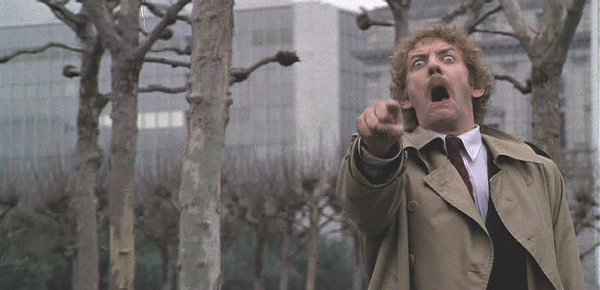 I am now officially a pod person. I've been interviewed before, which is an interesting experience the first few times, but when you notice yourself repeating many of the same answers in slightly different ways, it can be a case of diminishing returns. Which illustrates the importance of fresh questions on the part of the interviewer, but also behooves the interviewee to remember to dig deep and not resort to phoning it in... which is an apt figure of speech for the most recent experience I had of this strange concept in which one person asks questions of another person and they share the result of the conversation in the assumption others will find it interesting. But anyway, what I'm getting at is, on this occasion I did actually phone it in. Almost literally. Well, okay, Skyped it in. And the interviewer, Carolyn Steele, who runs the website Trucking In English, shaped this audio into something very listenable—a podcast, in fact, and the only known recording of my voice on the internet.
I am now officially a pod person. I've been interviewed before, which is an interesting experience the first few times, but when you notice yourself repeating many of the same answers in slightly different ways, it can be a case of diminishing returns. Which illustrates the importance of fresh questions on the part of the interviewer, but also behooves the interviewee to remember to dig deep and not resort to phoning it in... which is an apt figure of speech for the most recent experience I had of this strange concept in which one person asks questions of another person and they share the result of the conversation in the assumption others will find it interesting. But anyway, what I'm getting at is, on this occasion I did actually phone it in. Almost literally. Well, okay, Skyped it in. And the interviewer, Carolyn Steele, who runs the website Trucking In English, shaped this audio into something very listenable—a podcast, in fact, and the only known recording of my voice on the internet.





